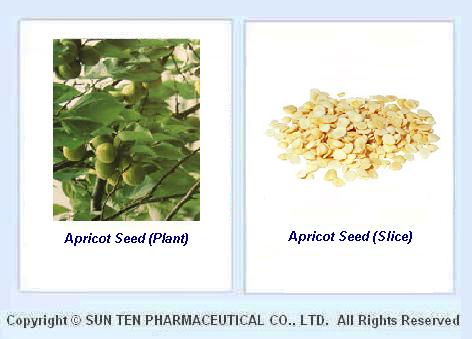Apricot Seed (Semen Armeniacae amarum; Xing Ren)
TCM Herbal Story
Apricot Seed (Semen Armeniacae amarum; Xing Ren)
The apricot has a tight bond with medicine since ancient times. The entire plant is rich in medicinal value: the leaf of apricot can be used to treat eye disease and edema; the flower is effective for chill, fever, and numbness; and the twig can be used for bruises.
According to legend, there was a famous doctor named Dong Feng who lived in Mt. Lu during the Three Kingdoms period. Since he never took any money in return for treating patients, his patients started to plant apricot trees around his house in order to express their gratitude. Patients who recovered from minor illness would plant one apricot tree in return, and those recovered from serious illness would plant five. After several years, the number of planted apricot trees became so great that it had grown into a forest. Up until now, the story is still highly praised in the medical community, and the phrase “Xing Lin” or “Apricot Forest” when translate literally is also used to represent the medical industry.
Apricot Seed is the seed of Prunus armeniaca L. Its properties are bitter, slightly warm, and slightly toxic. It enters through the large intestine and lung.
Actions & Indications:
- Stops coughing and calms wheezing
- Moistens the intestines and unblocks the bowels
Caution & Contradiction
- Use with caution in treating infants and in cases of diarrhea
- According to some traditional sources, this herb antagonizes Radix Astragali membranacei (huang qi), Radix Scutellariae baicalensis (huang qin), and Radix Puerariae (ge gen).
The original article is from Brion Research Institute, translated by Sun Ten Pharmaceutical Co., Ltd.
For Chinese/original version, please go to:
http://www.brion.org.tw/index.php?option=com_content&task=view&id=1021&Itemid=22
